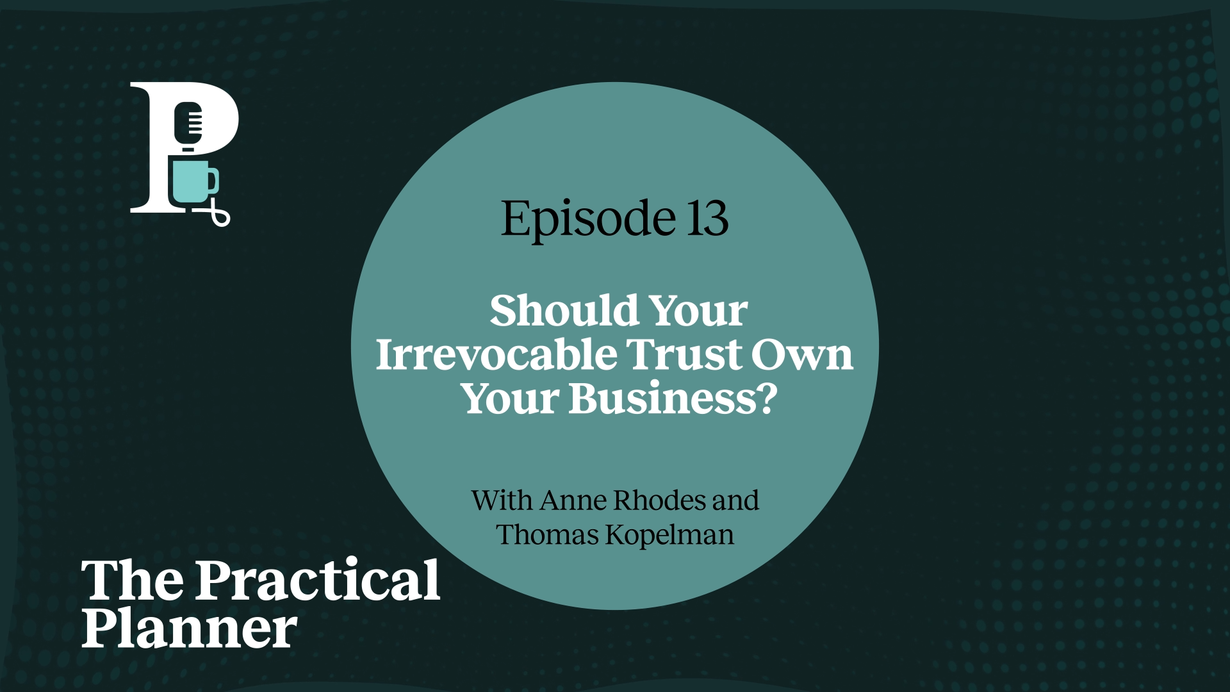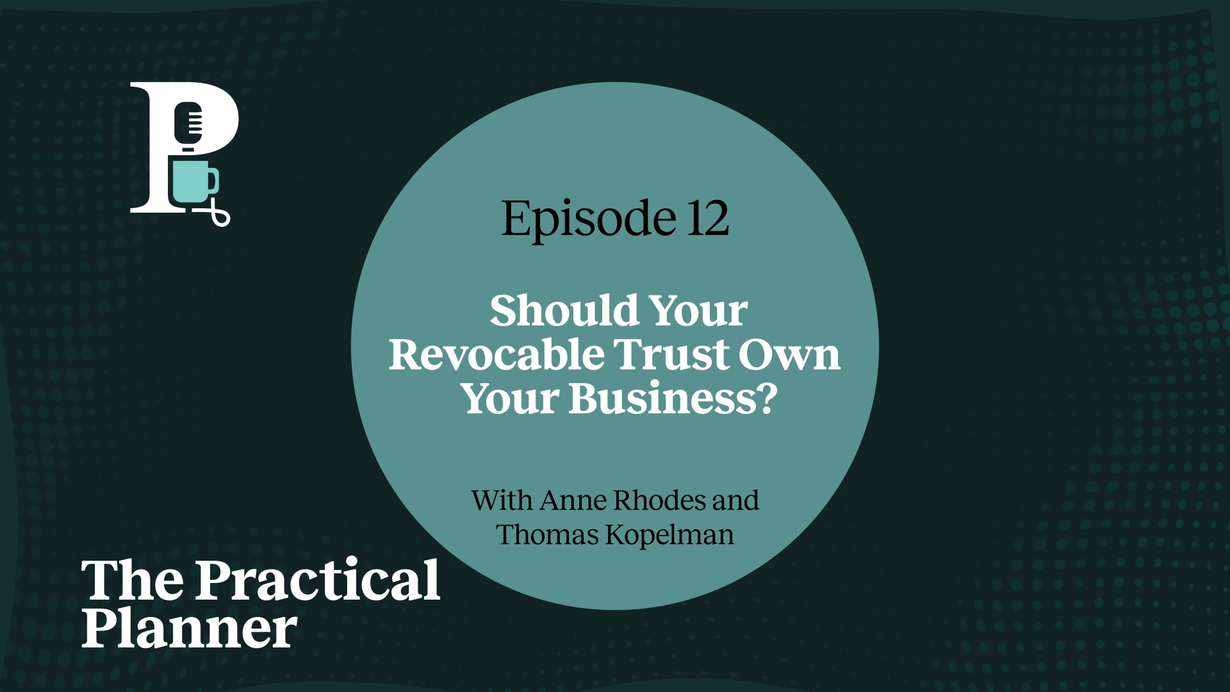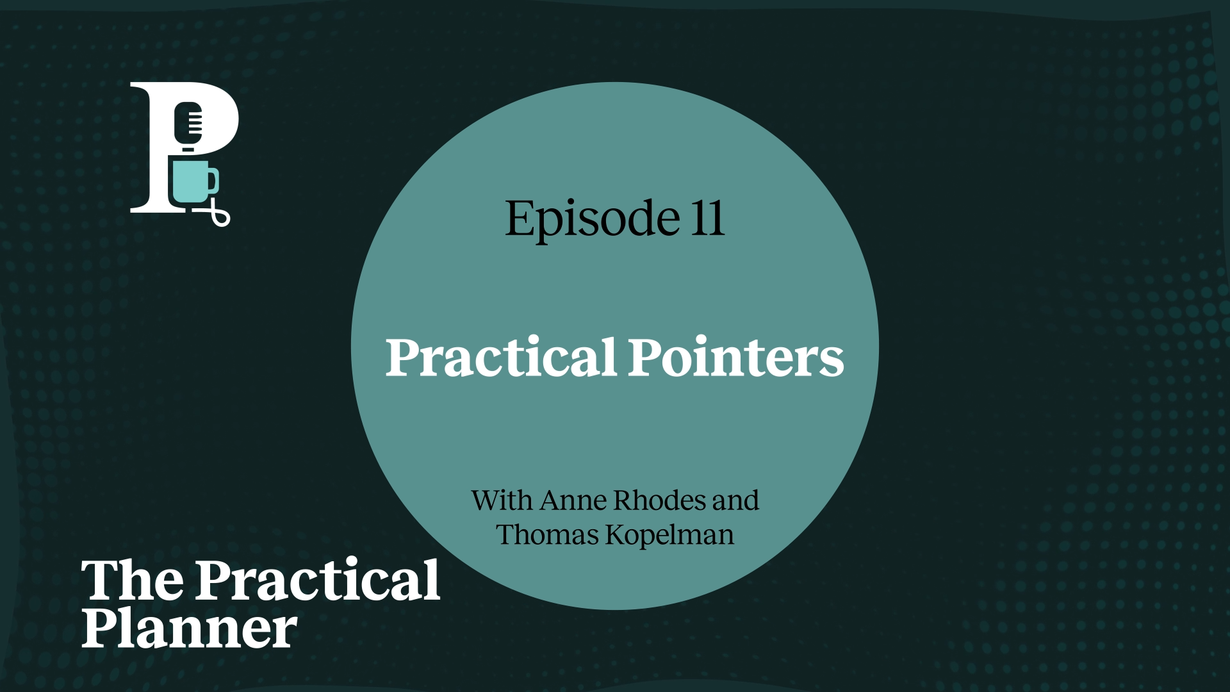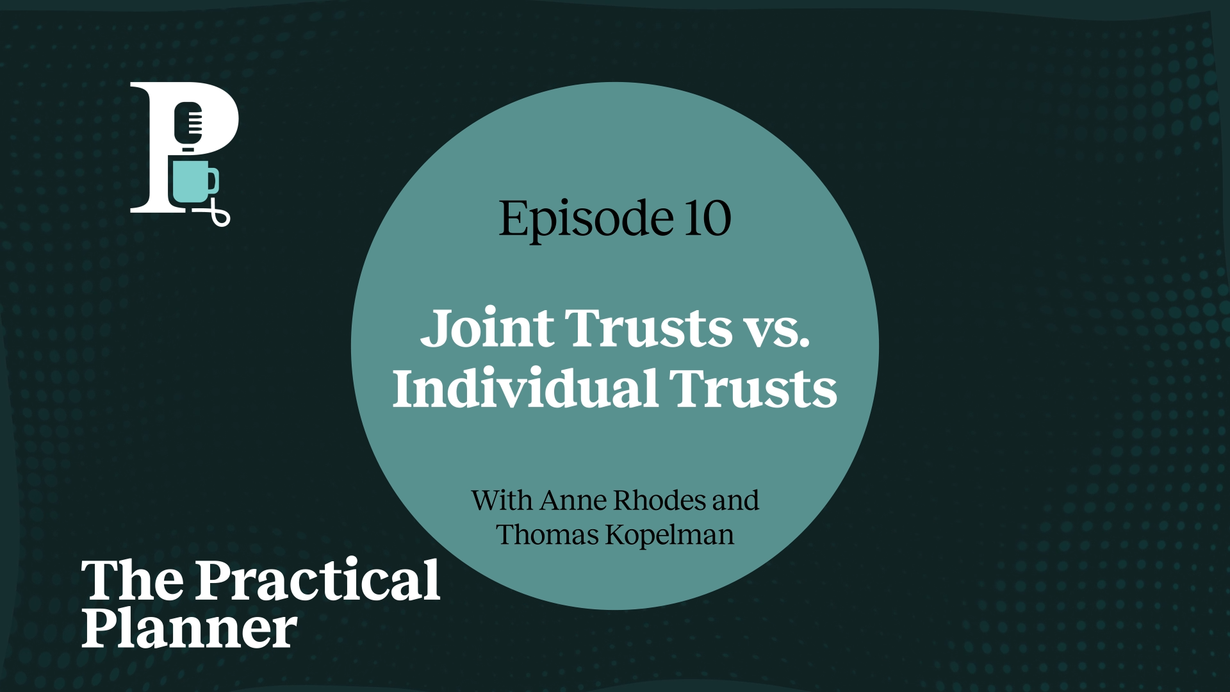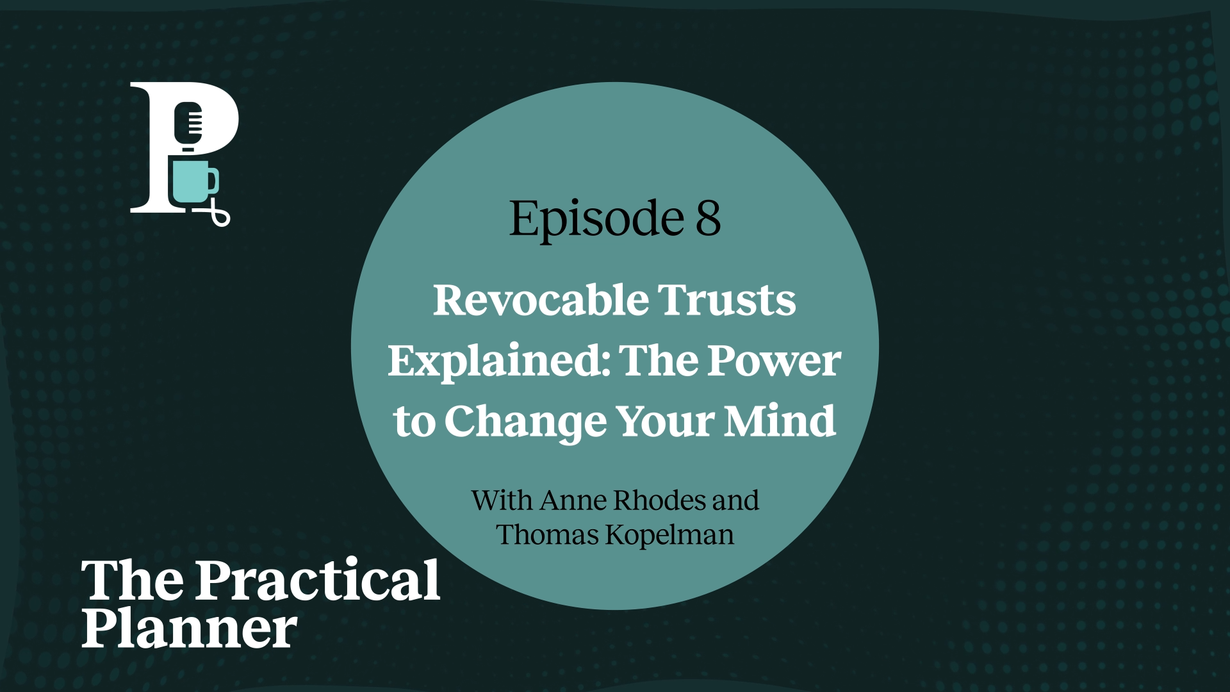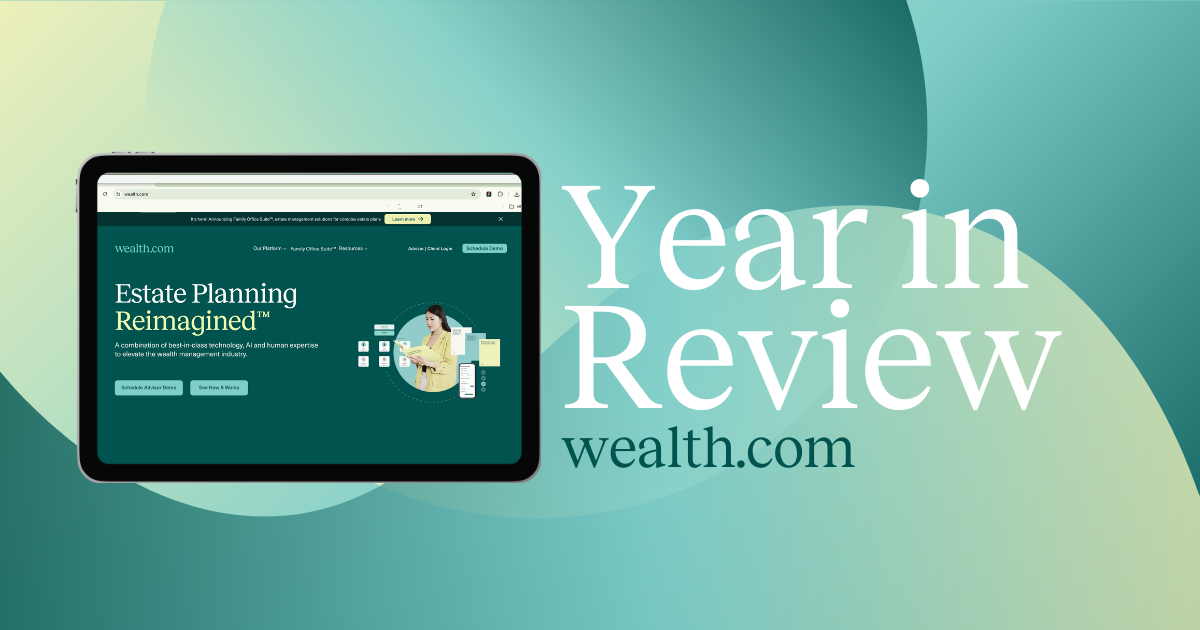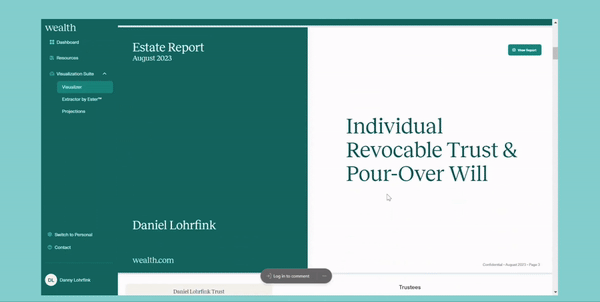We are continuously focused on developing new solutions to provide advisors and their clients with a comprehensive platform that maintains the quality and rigor expected in estate planning. That’s why we’re excited to announce that we’ve enhanced the ability for users to better customize their Joint Revocable Trust to include sub-trusts, including a Marital Trust, Trust for Descendants, or a simpler Holdback Trust.
These sub-trusts have several advantages, including the ability for strategic tax planning and ensuring that your clients’ wishes and objectives are met after they’ve passed on. As your client drafts their Joint Revocable Trust, their answers to questions asked by our platform’s intelligence engine will help determine and suggest whether any of these sub-trusts should be included in their estate plans.
Please note that the ability to include a customized Marital Trust and/or Trust for Descendants is available for your client in their Individual Revocable Trust workflow and is coming soon for the Last Will & Testament.
Marital Trusts can be beneficial for:
- Blended families
- High net worth couples who would like to minimize the taxes their estate might owe at their death
- Couples with assets they want kept within the family, like a family business
A Marital Trust is a specific type of sub-trust typically used when estate planning for spouses to maintain some control over how the surviving spouse invests or uses the assets of the first spouse to pass away, and to provide flexibility to trustees to protect specific assets and values from estate tax liability.
You can learn more about Marital Trusts here.
Trusts for Descendants can be beneficial for:
- Those who are concerned about their descendant’s ability to handle their finances
- Those who may pass away with a taxable estate
- Deciding an age at which descendants will receive their inheritance
A Trust for Descendants is a specific type of sub-trust that is created for the benefit of a child or grandchild, and allows a trustee to help the beneficiary manage their inheritance.
You can learn more about Trusts for Descendants here.
If you have any questions or would like further information, please reach out to your Client Success Manager or email [email protected].
